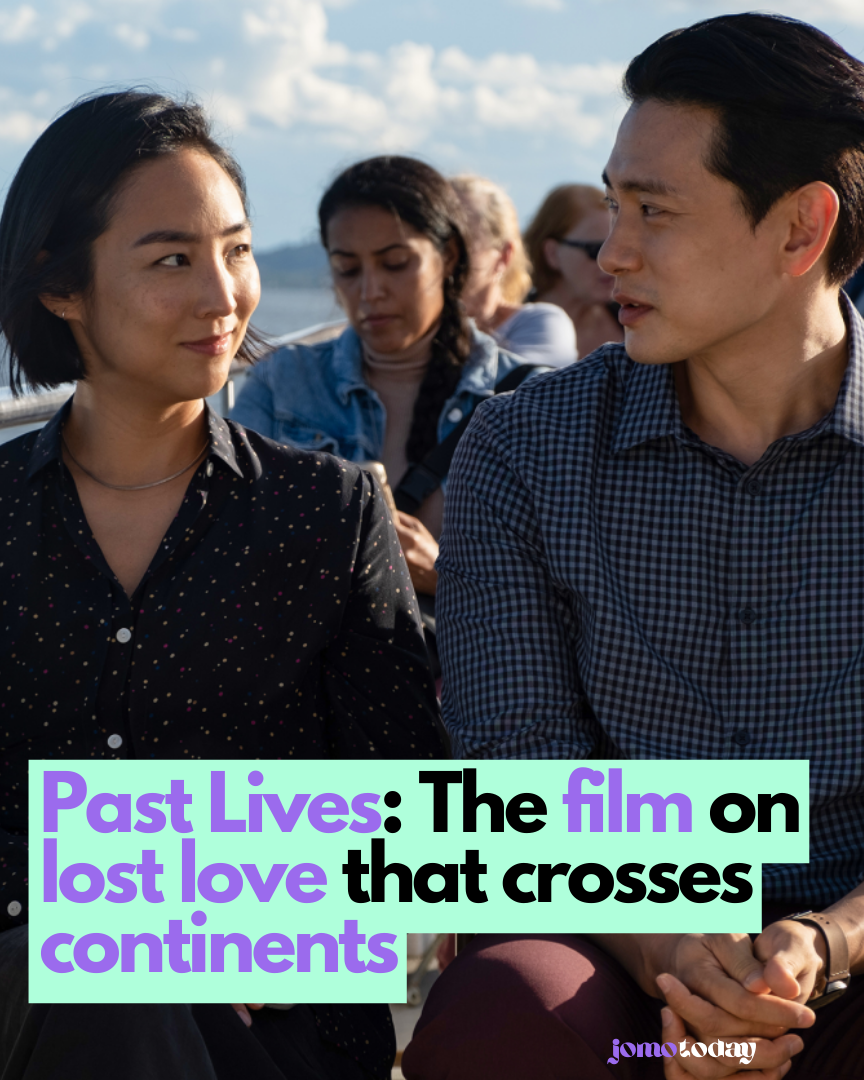“Past Lives” is an Oscar-tipped film portraying the reunion of childhood friends as they attempt to reconcile their divergent lives. The compelling narrative spans continents and delves into themes of lost love.

The Oscar-tipped film sees two childhood friends reunite and try to reconcile their separate lives.
A novice film director has successfully transformed the story concept into an Oscar-contending and Bafta-nominated film. “Past Lives,” crafted by Korean Canadian playwright and director Celine Song, stands out as a bilingual masterpiece, skillfully produced in both Korean and English.
The protagonist, Nora, portrayed by the talented American actress Greta Lee, embarks on a journey from South Korea to forge a new life and embrace a new language. Leaving behind her childhood friend Hae Sung, with whom she shares a profound connection, Nora eventually settles in America after marrying an American.
More than two decades later, Hae Sung unexpectedly announces his impending visit. The film explores the intricate emotions that arise as Nora, now married, reconnects with a lost love from her past. How will Nora and her husband navigate the complex web of emotions stirred by the resurgence of this long-lost connection?
Similar to Nora, Celine Song relocated from South Korea to North America at the age of 12, drawing inspiration from a specific encounter that fueled her creation of the film.
The genesis of “Past Lives” traces back to a poignant moment when Song found herself in a bar in New York City’s East Village, seated between her childhood sweetheart from Korea, now a friend, and her husband, with whom she resides in the city. Acting as a translator between the two individuals who didn’t share a common language, Song realized she was not only bridging the gap between their languages and cultures but also navigating the intricacies of her own identity and history.
“That moment truly became the catalyst for the entire film,” Song reflects.
Upon its world premiere at the Sundance Film Festival a year prior, “Past Lives” garnered immediate acclaim and Oscar speculation. The Guardian’s critic, Peter Bradshaw, lauded the film as “a narrative of lost love and childhood infatuation…exploring the paths not taken, the lives not pursued, and the futile nature of regret.” He also noted the film’s resonance with the migrant experience, portraying the enduring alternate realities that form in the mind—a dichotomy between the self that could have remained in the homeland and the one that ventured abroad for a new future.
The song echoes the sentiment that there is no human antagonist in the film; rather, the adversaries are the relentless passage of 24 years and the mighty Pacific Ocean. The narrative emphasizes that certain potent forces in our lives are beyond our control.
In the film, American actor John Magaro and German-Korean actor Teo Yoo portray the two significant figures in Nora’s life. However, the director, Song, cautions against interpreting the storyline as a conventional love triangle. She contends, “It’s facile to perceive the movie as a love triangle simply because it involves three characters. The reality is that it’s not a film centered on a love triangle but rather on a woman who chooses herself. It delves into her journey of self-discovery.”
Song asserts that the dynamic between the two men in Nora’s life isn’t about waiting to be chosen. Instead, it revolves around the idea that each man possesses a unique cultural, historical, and personal key to Nora. The film explores how these two men, upon encountering each other, can either harbor resentment or embrace the significance of their roles. Rather than competing, they could acknowledge, “I’m grateful you’re here because only when both of us are present can she be fully unlocked.”
Song initially worked as a screenwriter and playwright before venturing into filmmaking with her latest creation, “Past Lives.” Despite not securing any Golden Globe awards, the movie is generating significant buzz as a strong contender for recognition in the upcoming Oscar nominations. It has also garnered three Bafta film award nominations, including one for the best original screenplay.
While it’s not uncommon for first-time filmmakers to receive nominations or even win prestigious awards, Song believes that Parasite’s remarkable success at the 2020 Oscars has paved the way for greater acceptance of non-English language storytelling. Notably, last year’s best film, “Everything Everywhere All At Once,” was produced in English, Mandarin, and Cantonese.
For Song, the language used in her film is integral to its storytelling. Being bilingual herself, the script is crafted in both languages, reflecting the characters’ linguistic diversity. She emphasizes that subtitles are no longer perceived as a barrier, but rather an asset, citing the positive reception of her film as evidence. Despite initial doubts about the marketability of a properly bilingual movie, Song acknowledges the audience’s strong connection to the film as its most significant achievement.
During the script-writing process, Song encountered limitations in major programs that favored the English alphabet, reinforcing the notion that Hollywood might not be interested in bilingual stories. However, the success of “Past Lives” has proven otherwise, breaking down preconceived barriers and highlighting the growing appreciation for multilingual narratives in the film industry.
Song expresses her hope that audiences will discover a universal connection in Nora’s journey of rekindling her first love while navigating adulthood in a foreign land.
“You might not have experienced crossing the Pacific Ocean and relocating to a new country, essentially relinquishing a language and culture. However, the sentiment of no longer being 16 is something everyone can relate to,” she explains.
“We all share the sense of being connected to the idea that we’ve evolved from our past selves. Yet, there are individuals in our lives who safeguard fragments of our history and identity, cherishing the person we once were.
“Some people remember us as the 16-year-old or the 12-year-old, holding onto those memories dearly. The film’s tension arises from the special significance of someone preserving a part of you eternally.
“In realizing this, I find comfort in the fact that this experience isn’t exclusive to a single night in a particular bar—it’s a shared sentiment that transcends language barriers and reaches people in countries unknown to me.”
Read More: Oppenheimer: David Baddiel questions casting of Cillian Murphy as Jewish physicist






Leave a Comment